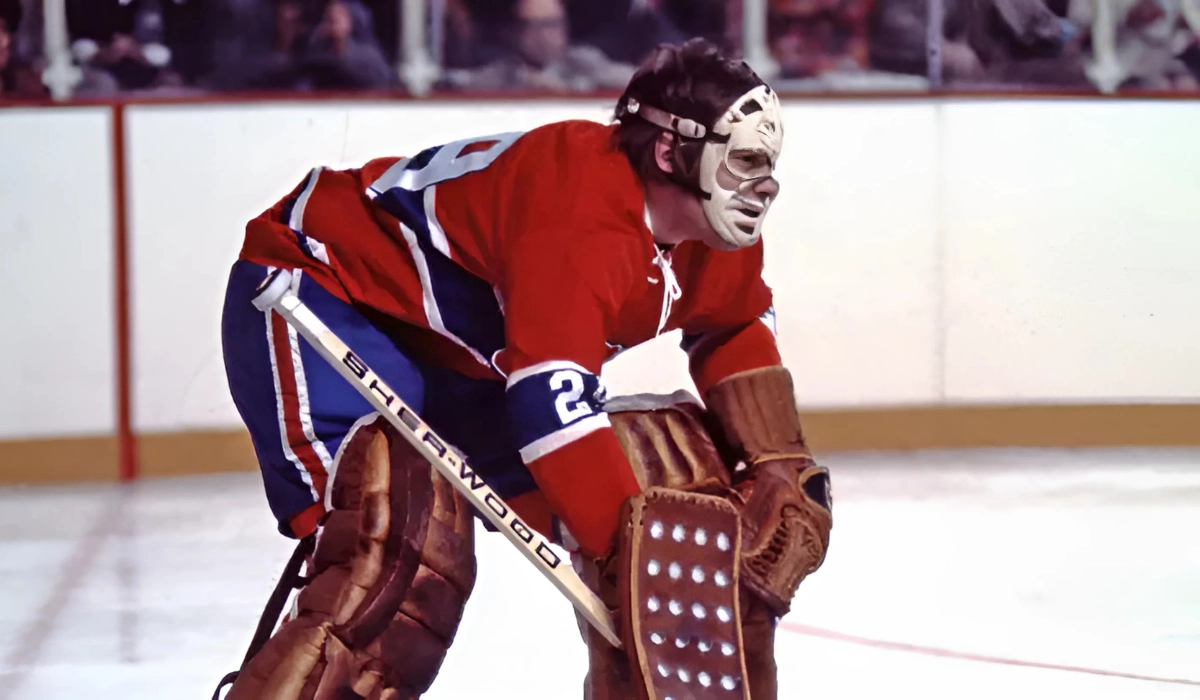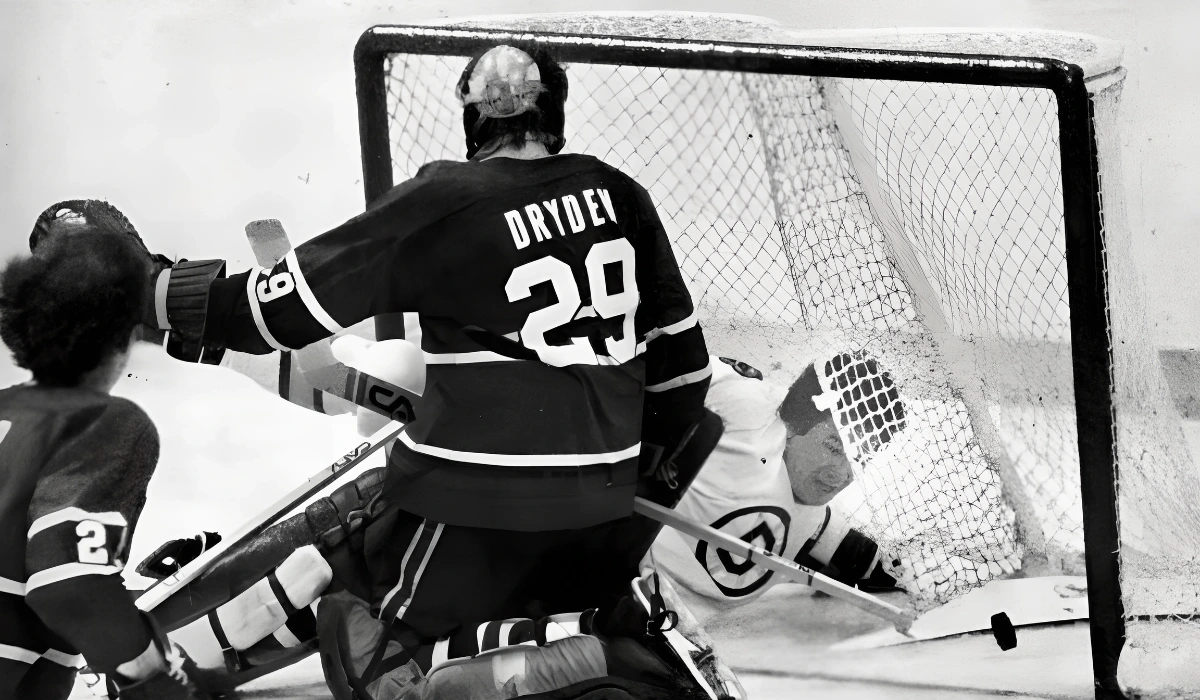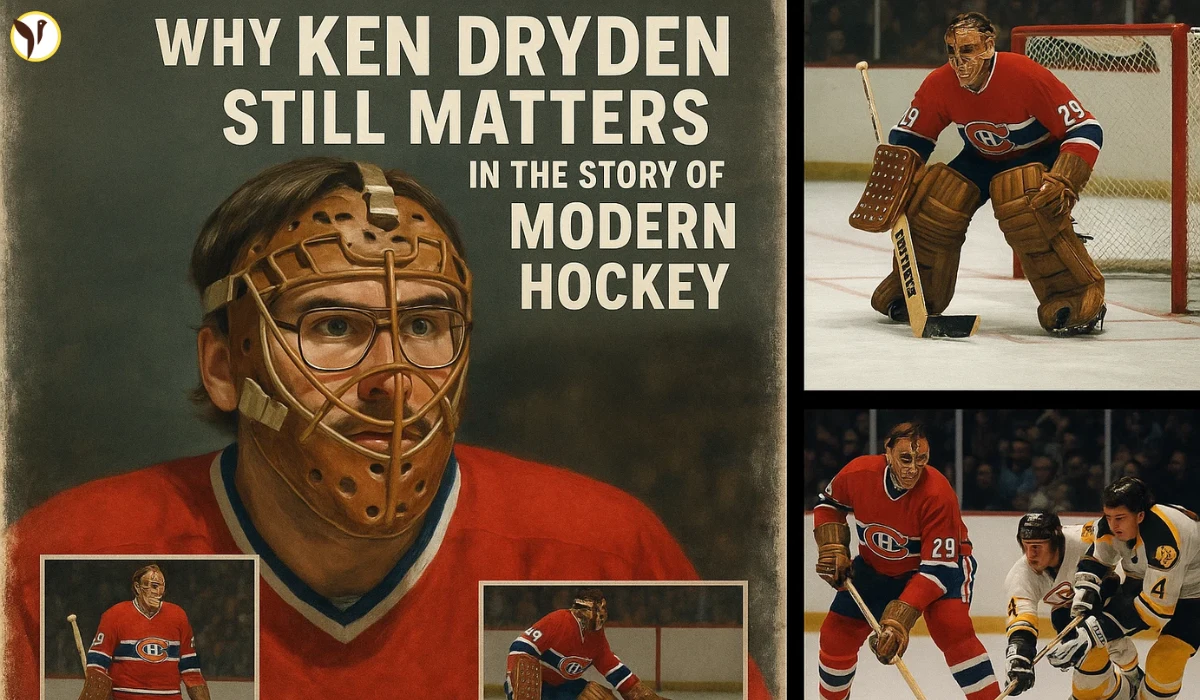When it comes to legends in hockey, some names seem to be woven in the fabric of each rink — Wayne Gretzky, Bobby Orr and Mario Lemieux. But perhaps the most significant name in that group is Ken Dryden of the Montreal Canadiens, the towering goalkeeper who changed the way the game was played and how it was remembered and debated and governed.
Dryden was, of course, a six-time Stanley Cup champion, but he was also a writer, a thinker, a lawyer, a politician, and a reformer. When word broke in September 2025 of his death at 78, tributes came in from oceans away — they came from locations across Canada and the Canadian sports world. And yet, the true story is still this: even though Dryden did not play in the NHL after 1979, he never stopped shaping the way we think about hockey.
This is why Ken Dryden matters still in the story of modern hockey — because his impact on the game was about far more than saves and shutouts.

Early Life And Rise To Stardom
Ken Dryden was born in Hamilton, Ontario in 1947. Tall and naturally calm, he developed into a goalie early on. He really distinguished himself as both a scholar and athlete while at Cornell University.
As part of the Cornell team in 1967, Dryden helped Big Red to an NCAA championship. He wasn’t just stopping pucks; he was developing himself as a thoughtful person who understood that hockey was part of life, but not all of it.
By the time he arrived in the NHL, Dryden was different from other young players. He was confident, educated, and reflective, rather than young, anxious, and desperate.
The Miracle Of 1971 – A Rookie Who Stole The Cup
In 1971, Dryden created a sensation in hockey circles. He played just six regular-season games before the playoffs, but Coach Al MacNeil decided to give him the net in the post-season
What resulted was one of the greatest playoff runs in history:
He upset Bobby Orr’s Boston Bruins.
He took the Canadiens all the way to the Stanley Cup.
He was named the Conn Smythe Trophy winner for playoff MVP.
And the next year, he was a formally recognized as "rookie of the year" with the Calder Trophy — this odd but perfect story added to the myth.
Ken Dryden’s Career Achievements
|
|
|
|
|
|
|
|
|
|
|
|
|
|
|
|
|
|
|
|
|
|
|
|
|
|
|
|
|
|
|
|
|
|
|
|
|
|
|
|
|
|
|
|
Style Of Play – Calmness Redefined
Ken Dryden didn't have the flamboyance of Dominik Hašek or the adrenaline of Patrick Roy. He had a calm, almost lethargic presence. His trademark pose-chin resting on stick-was etched in the minds of so many as a confident and commanding representation.
As towering as 6'4" is for a goalie in the early 1970s, Dryden was not goaltending for the same purpose that most of us experience-pursuing the puck. Instead, giving himself the authority to wait, observe, and finally smother the puck with absolute stillness, Ken Dryden inspired confidence in his players that nothing bad would happen behind them.
The Vancouver Canucks are deeply saddened to learn of the passing of Hockey Hall of Famer, Ken Dryden. A six-time Stanley Cup champion, multiple award-winner, distinguished author, and public servant, his impact was felt far beyond the crease.
— Vancouver Canucks (@Canucks) September 6, 2025
On behalf of the entire Canucks… pic.twitter.com/gQEGMMbdTx
Beyond The Rink – A Thinker And Writer
Many hockey players retire and fade into the background. Dryden did the opposite. In 1983, he wrote The Game, a book still considered one of the greatest sports books ever written.
It wasn’t just about hockey scores; it was about the psychology of athletes, the meaning of winning, and the doubts inside even the best teams. Generations of players and fans have read it not as a manual of hockey, but as a mirror of life itself.
Later books like Game Change (on concussions and safety in hockey) made him a voice for reform. Long before leagues admitted the risks of head injuries, Dryden was calling for action — proving he cared for players as people, not just performers.
The Politician – Serving Canada
In 2004, Ken Dryden began his political journey as a Member of Parliament for the Liberal Party. Subsequently, he was assigned to Minister of Social Development, where he performed work around childcare and community programs.
While politics was tough, and often painful, Dryden elevated the dignity of it all. People recalled that he was a person who conducted himself - as he did on the ice - calmly and deliberately and never sought cheap victories.

Legacy In Today’s Hockey
Why does Dryden still matter in 2025? Because his existence shows that hockey is more than a mere game.
As a player, he brought six Stanley Cups to Montreal, and defined a dynasty of hockey in the 1970s.
As a writer, he embodied the spirit of the game in words.
As a politician, he showed that athletes could contribute to society in ways that extend beyond fame.
As a reformer, he built awareness about player safety and health.
When we think of the many young stars today — and not limited to Connor McDavid and Cale Makar — they are playing in a league that has been guided by Dryden's quest for improved rights and conditions, for respect for the mind, and the right to balance `a life' beyond hockey.
Emotional Human Touch
When Dryden passed in September 2025, Canadiens fans gathered outside the Bell Centre, laying flowers and candles. One fan said:
“Dryden wasn’t just our goalie. He was our calm. When he was in net, life felt safe.”
That sentence explains his true impact. More than his wins, he gave people comfort and pride.









